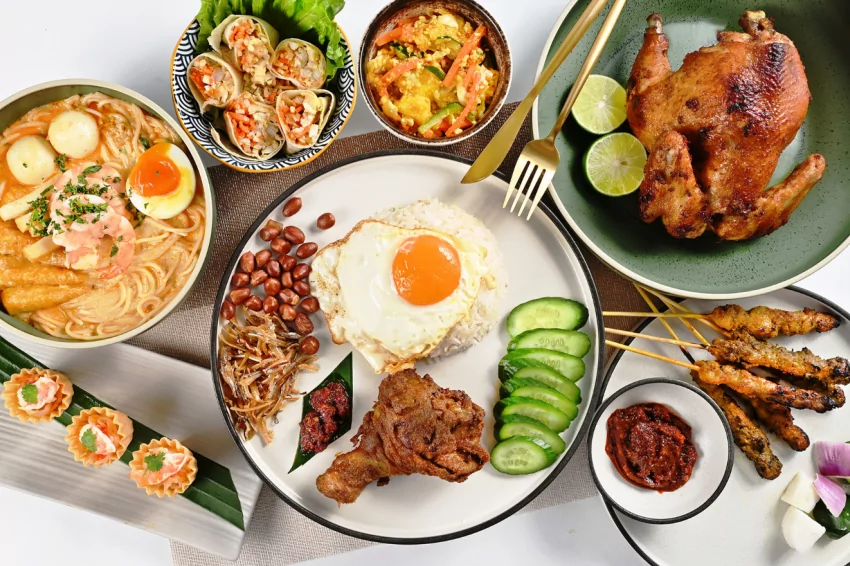

(c) the honeycomber
Singapore, known for its buttoned-up reputation, is once again in the spotlight as speculations arise about its potential rise as Asia’s new capital of cool. This vibrant city-state has been a topic of discussion in recent years, with claims that it is evolving into a destination worth traveling to, rather than just a transit point. While previous attempts to establish Singapore as a cultural hub have fallen short, this time, external factors and regional shifts in business dynamics seem to be driving its transformation.
In the wake of geopolitical changes and the shifting landscape of neighboring countries, Singapore has seen an influx of people and wealth from Hong Kong and mainland China. The Financial Times reports that since the end of 2021, over 800 family offices have been established in Singapore, with approximately 500 Chinese family offices, private-equity firms, and wealth managers choosing to open or relocate to the city. Singapore has long been a favored base for ultra-high-net-worth residents from neighboring Indonesia, Malaysia, and the Philippines.
Additionally, global tech giants such as Meta, Google, and Apple have set up their Asia-Pacific headquarters in Singapore, while some Hong Kong-based banks are relocating senior staff. The city is also witnessing a surge in blockchain and tech start-ups, further enhancing its reputation as a burgeoning tech and innovation hub.
The arrival of these new expatriates, along with their substantial capital, has become a hot topic of conversation. Singaporeans are witnessing soaring rents, with locals being pushed out of central neighborhoods due to rent hikes, while newcomers from mainland China are signing leases worth $100,000 per month for luxurious penthouse flats and coveted black-and-white colonial houses. To address the housing boom partially driven by mainland Chinese buyers, the government announced a doubling of the tax on private property purchases by foreigners to 60 percent in April, aiming to cool the market.
One may wonder if these shifts in decoupling and diversification have indeed ushered in cultural changes in Singapore. The city has long grappled with the challenge of nurturing a vibrant cultural scene, whether at grassroots or institutional levels. However, a recent art fair named ART SG, organized by The Art Assembly, showcased the city’s growing potential as an art hub.
With more than 160 galleries, including renowned names like Gagosian, Lehmann Maupin, White Cube, David Zwirner, as well as boutique stars such as Almine Rech and Xavier Hufkens, the event attracted an estimated 43,000 international art enthusiasts and influential regional collectors. The presence of such heavyweight galleries reflects their belief in the Singaporean art market and the desire to establish connections with regional collectors. The peripheral programming of ART SG also impressed attendees, showcasing high-quality art installations and exhibitions.
Beyond ART SG, other venues like SEA Focus, spearheaded by STPI Creative Workshop & Gallery, and the Singapore Art Museum (SAM), have contributed to Singapore’s burgeoning art scene. Tanjong Pagar Distripark, a multistorey complex on the waterfront, has emerged as a new arts cluster, housing SAM and several galleries. The city has witnessed a shift from the traditionally reserved and restrained atmosphere, with glimpses of un-Singaporean glamour and vibrancy.
One Hong Kong-born entrepreneur, Alan Lo, has personally experienced the evolving energy of Singapore. He relocated his family to the city during the pandemic, attracted by the city’s diverse and dynamic atmosphere. While Singapore may not match Hong Kong’s intensity, it offers a slower pace and a more diverse environment, attracting a growing number of new residents, including individuals from mainland China, crypto enthusiasts, and professionals from the tech and venture capital sectors.
The city’s reputation as a culinary destination has also contributed to its rise as Asia’s new capital of cool. Singapore boasts a thriving food and beverage scene, with a range of homegrown bar concepts, breweries, and distilleries.
Internationally acclaimed establishments like 28 HongKong Street, Jigger & Pony, and Atlas, with its impressive 26-foot gin “tower,” have put Singapore on the map for cocktail enthusiasts worldwide. The city’s diverse dining scene is also noteworthy, with restaurants adding to the local tapestry by incorporating various cuisines and flavors.
Singapore’s transformation into Asia’s new capital of cool is an exciting development that showcases the city’s ability to adapt and embrace change. With its growing art scene, vibrant nightlife, and culinary prowess, Singapore is attracting international attention and solidifying its position as a cultural and creative powerhouse in the region. As the city continues to evolve and diversify, it offers both residents and visitors a unique blend of dynamism, diversity, and the opportunity to experience the best of contemporary Asian culture.
Oppo is one of the forerunners of mobile production companies in the Asian market primarily for their impressive features easing…
Rock legends Foo Fighters are now officially returning to the stage in 2025 as they already made their first booking…
All eyes are now turned towards the Middle East, after the buzzing real-time announcement has been dropped on the social…
The 36-year old Indian cricketer, Ravindra Jadeja has garnered the glory of becoming the No.1 all-rounder in the Test rankings…
On 14 May 2025, three artists Ken Miyake, Hiromitsu Kitayama and Yuma Jinguji from the TOBE agency has come forward…
China’s exports of steel to ASEAN countries had significantly sky-rocketed in Q1-2025, with an astounding 36.55 million tons traded within…
This website uses cookies.
Read More